" Gamification" of the Lecture
Unlike previous generations, Generation Alpha (born between 2010 and 2024) is exposed to digital technology very early and continuously. According to Ms. Tran Thi Dan, founder and operator of Sunrise Vietnam (Hanoi), this is considered the "look before read" generation because they are extremely familiar with social networking platforms.
"To attract Generation Alpha, we need images, short videos... in particular and change teaching methods in general," Ms. Dan commented and said: "Instead of reading textbooks, students will absorb lectures better through educational videos, multimedia presentations and game-based learning platforms (gamification). At the same time, it is necessary to encourage project-based learning and pay attention to training soft skills."
Ms. Dan added that improving reading comprehension skills for students is something that cannot be ignored. At the same time, when bringing technology into the classroom, integrate it intentionally. "Generation Alpha will also work in a world where jobs are constantly changing. Therefore, schools need to teach them how to learn new things quickly and proactively instead of just providing a fixed set of knowledge," the female director shared.
Having worked with Generation Alpha for many years, Mr. Nguyen Vo Minh Tam, co-founder of TTE-The Learning Center in Ho Chi Minh City, said that Generation Alpha does not see technology as a "tool" but as a part of life. And because they are influenced by short-form content platforms like TikTok, they prefer information presented in the form of visual, highly interactive and "to-the-point" multimedia products.
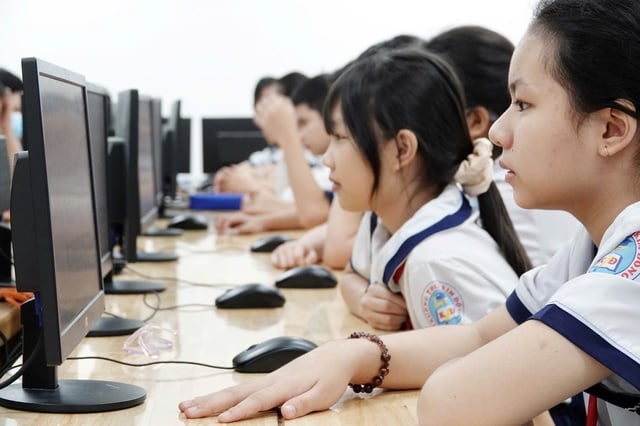
Generation Alpha is exposed to digital technology from a very early age and continuously.
PHOTO: DAO NGOC THACH
That is why Mr. Tam believes that instead of just applying paper tests, teachers need to "gamify" their lessons, integrating platforms such as Kahoot!, Quizlet, and Blooket to create fun and competitive knowledge competitions. "Turning learning into a game where students receive scores and rankings will create instant motivation and excitement for Alpha generation students," Mr. Tam said.
At the same time, to avoid students losing focus, Mr. Tam is applying the "microlearning" teaching method, which means instead of lecturing for 45 minutes straight, the lesson is divided into small sections lasting about 10-15 minutes. Interspersed between these sections, teachers will include some quick interactive activities such as small group discussions, answering questions or mini-games to reinforce the knowledge just learned.
"Some subjects that can flexibly and effectively apply the above methods are literature, natural sciences and English. The results show that students are not only enthusiastic but also proactive in acquiring knowledge," said Mr. Tam. "We are also researching and developing an online test platform to help students prepare for the high school graduation exam on computers in the next few years," he added.
TEACHING COMMUNICATION SKILLS, IDENTIFYING FAKE NEWS
Another point worth noting is that Generation Alpha tends to interact more online, so they often have difficulty communicating face-to-face and working in groups. Therefore, teachers need to focus more on training and cultivating this skill for students. In addition, teachers also need to integrate digital skills education such as teaching students how to identify fake news, cite reliable sources and how to behave civilly on social networks.
In general, according to Mr. Tam, approaching Generation Alpha requires a profound change in thinking from educators. "Instead of viewing technology tools as distractions, we need to learn how to exploit them to personalize the learning experience, helping students not only acquire knowledge but also develop the necessary skills for the future," Mr. Tam commented.
TRADITIONAL EDUCATION SHOULD BE THE PILLAR
Master Bui Minh Duc, a Fulbright scholar who graduated with a degree in communications from Clark University (USA), commented that the way Generation Alpha uses social media to acquire knowledge is quite similar to the way media researcher Neil Postman mentioned about how television changed the way children learned in the 20th century, which is that education is more "entertained".
Accelerating digital transformation in education
At the recent education forum organized by the Regional Training Center of the Organization of Southeast Asian Ministers of Education in Vietnam, education leaders of many countries said they are focusing on digital transformation, bringing AI and many technologies into the classroom, in the context of Alpha generation students making up the majority in the general education environment. For example, in Malaysia, 100% of school leaders will be trained in AI and digital leadership to help students access modern learning methods by the end of 2025.
Mr. Ab Aziz bin Mamat, Director of Aminuddin Baki Institute, Ministry of Education, Malaysia, informed that Malaysia is aiming to build a comprehensive digital learning ecosystem for students. Initial results show that the digital skills of rural students in Malaysia currently reach 3.27/5 points, gradually narrowing the gap with urban students (3.34 points).
In Indonesia, the Ministry of Education is vigorously implementing an initiative to develop teachers' capacity towards lifelong learning, updating modern teaching methods and mastering technology in the classroom.
In Vietnam, according to Ms. Nguyen Thi Thanh Minh, Deputy Director of the Department of International Cooperation (Ministry of Education and Training), many moves are being implemented such as deploying electronic textbooks, digital learning platforms, and simultaneously operating the national education data system with more than 254 million digitized records.
Ngan Le
"However, in the 21st century, the level of entertainment education of social networks such as TikTok and YouTube is much higher," said Master Duc.
According to Mr. Duc, entertaining education to a certain extent is necessary, as many teachers have introduced games into teaching and achieved high efficiency. However, education does not always have to be "fun" - there will be times when learning requires seriousness and high concentration, especially with dry and difficult knowledge.
"Saying that social networks are shaping the cognitive framework of Generation Alpha would be a hasty conclusion, but it is clear that social networks are influencing the way they receive knowledge," said Mr. Duc.
One of them is reduced concentration. Many studies have concluded that watching too much short-form content makes it difficult for learners to concentrate for long periods of time and find it difficult to spend time reading in-depth content. Not to mention that the knowledge provided on social networks like TikTok is often fragmented, only bringing learners to the surface without digging deep to help you understand the nature of the problem.
"I think it is impossible to ban social media from entering the lives of young people, in this case the Alpha generation. However, traditional education should still be the mainstay of education, while social media should only be a supplementary tool for learning. In addition, schools should educate young children about social media instead of letting them use it freely. Designing "no social media" or "no phone" time frames is also a solution used by many countries," Duc suggested.
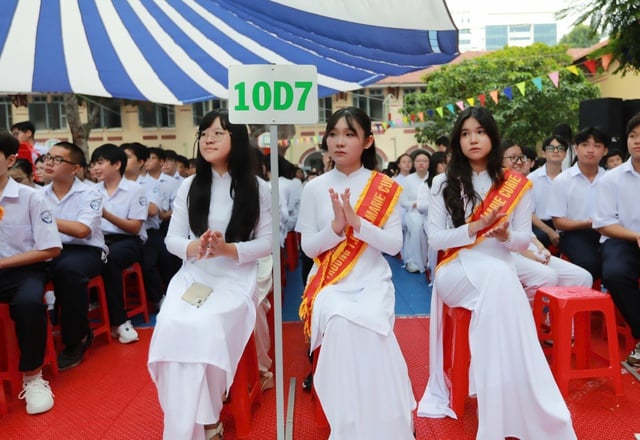
To successfully educate Generation Alpha, schools need a comprehensive transformation, from the initial approach to the learning environment and the skills that need to be equipped for learners.
Photo: Ngoc Duong
Expert Tran Thi Dan added that to attract Alpha generation students, schools need to create a multicultural learning environment where they can learn from people with different backgrounds and perspectives, while promoting cultural exchanges between schools and countries. Schools also need to clearly demonstrate their commitment to diversity, equality, sustainable development and nature protection, as these are issues that Alpha generation is extremely concerned about.
With the rise of the sharing economy, Generation Alpha may be inclined towards entrepreneurship or freelance work. Schools should encourage this spirit by offering courses on entrepreneurship, innovation and seminars on new economic trends, while encouraging students to interact and exchange with experts to connect knowledge with current reality, according to the female director.
"To successfully educate Generation Alpha, schools need a comprehensive transformation, from the initial approach to the learning environment and the skills that need to be equipped for learners. This is not only about adapting to a new generation, but also an opportunity to reshape future education," Ms. Dan emphasized.
Source: https://thanhnien.vn/the-he-alpha-nhin-truoc-khi-doc-cach-nao-day-hoc-hieu-qua-185251001225739541.htm






![[Photo] Prime Minister Pham Minh Chinh chairs meeting to deploy overcoming consequences of storm No. 10](https://vphoto.vietnam.vn/thumb/1200x675/vietnam/resource/IMAGE/2025/10/3/544f420dcc844463898fcbef46247d16)
![[Photo] Students of Binh Minh Primary School enjoy the full moon festival, receiving the joys of childhood](https://vphoto.vietnam.vn/thumb/1200x675/vietnam/resource/IMAGE/2025/10/3/8cf8abef22fe4471be400a818912cb85)


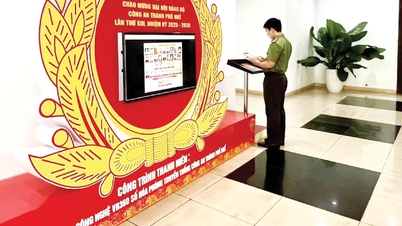



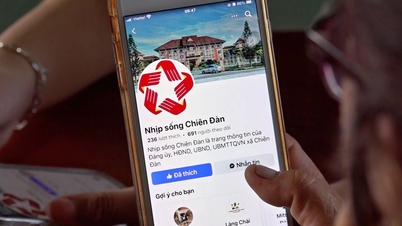

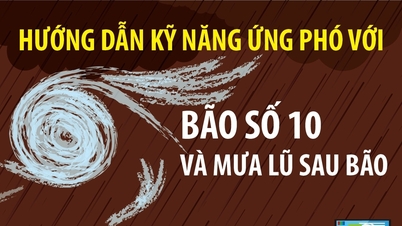


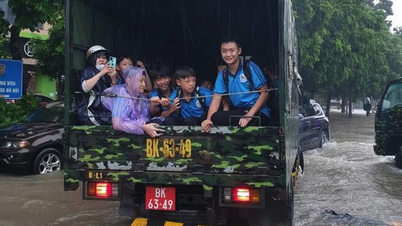

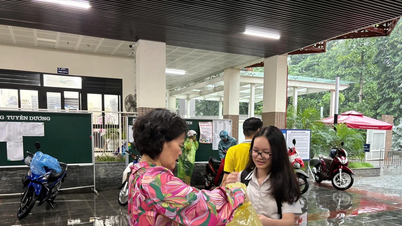






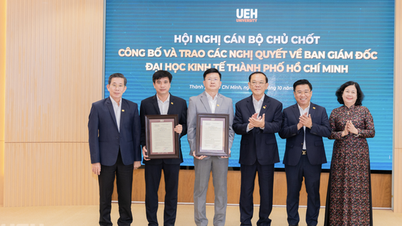









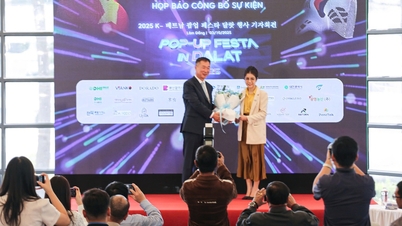















































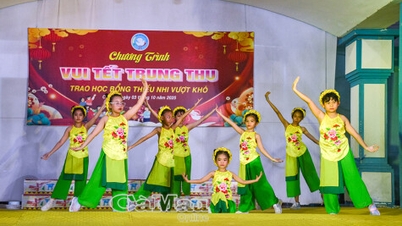

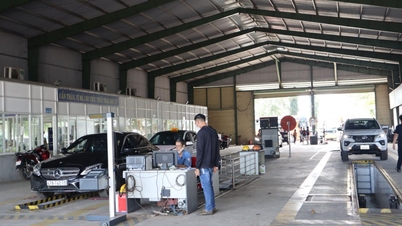

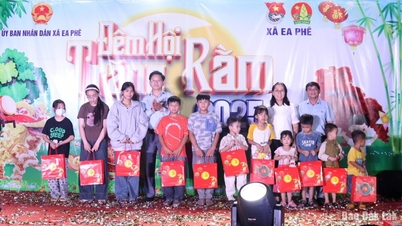
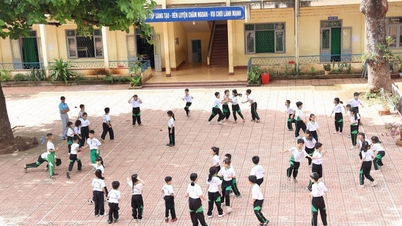













Comment (0)